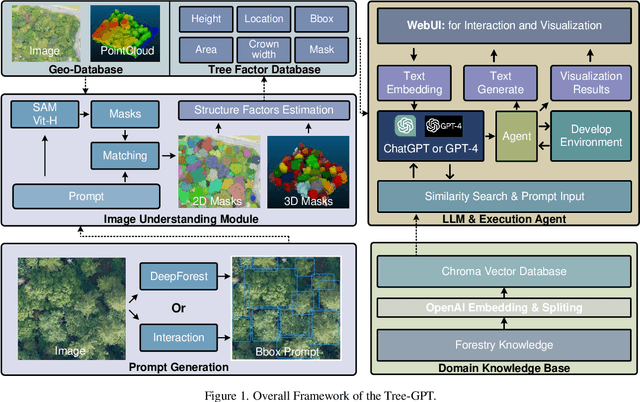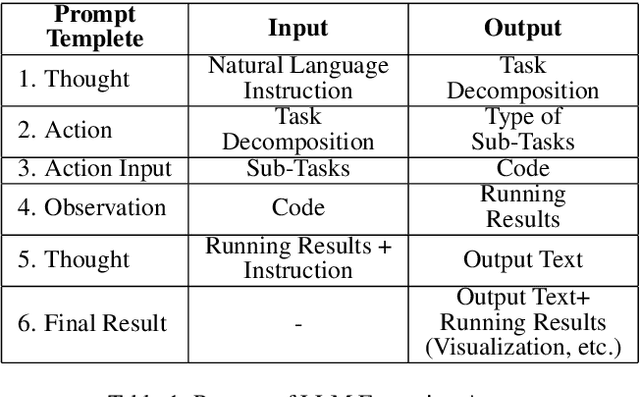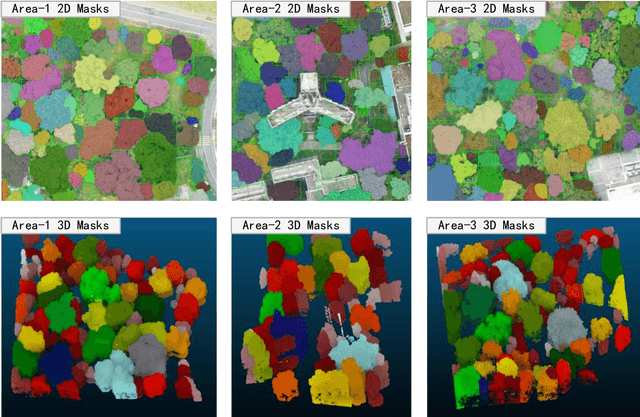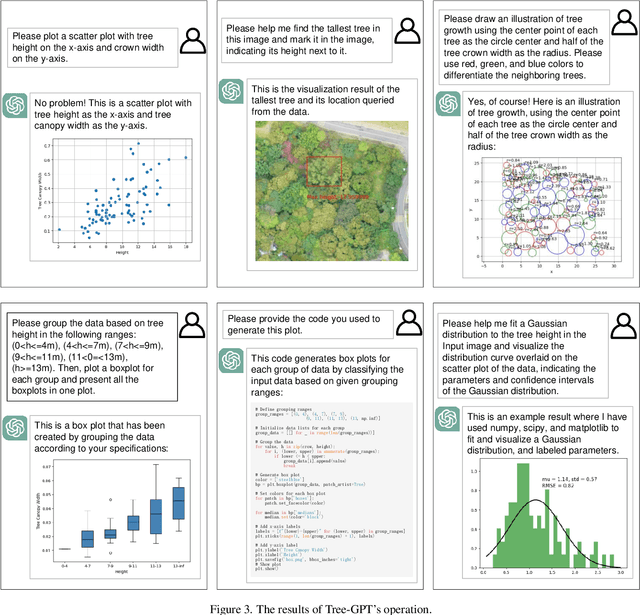Tree-GPT: Modular Large Language Model Expert System for Forest Remote Sensing Image Understanding and Interactive Analysis
Paper and Code
Oct 07, 2023



This paper introduces a novel framework, Tree-GPT, which incorporates Large Language Models (LLMs) into the forestry remote sensing data workflow, thereby enhancing the efficiency of data analysis. Currently, LLMs are unable to extract or comprehend information from images and may generate inaccurate text due to a lack of domain knowledge, limiting their use in forestry data analysis. To address this issue, we propose a modular LLM expert system, Tree-GPT, that integrates image understanding modules, domain knowledge bases, and toolchains. This empowers LLMs with the ability to comprehend images, acquire accurate knowledge, generate code, and perform data analysis in a local environment. Specifically, the image understanding module extracts structured information from forest remote sensing images by utilizing automatic or interactive generation of prompts to guide the Segment Anything Model (SAM) in generating and selecting optimal tree segmentation results. The system then calculates tree structural parameters based on these results and stores them in a database. Upon receiving a specific natural language instruction, the LLM generates code based on a thought chain to accomplish the analysis task. The code is then executed by an LLM agent in a local environment and . For ecological parameter calculations, the system retrieves the corresponding knowledge from the knowledge base and inputs it into the LLM to guide the generation of accurate code. We tested this system on several tasks, including Search, Visualization, and Machine Learning Analysis. The prototype system performed well, demonstrating the potential for dynamic usage of LLMs in forestry research and environmental sciences.
 Add to Chrome
Add to Chrome Add to Firefox
Add to Firefox Add to Edge
Add to Edge